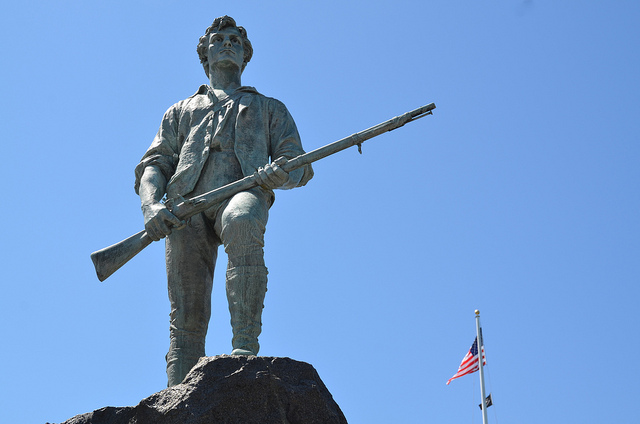
Massachusetts will be the first state to track civic engagement for public college students (Judy Baxter/ Flickr CC).
Massachusetts is adopting a plan to make civics part of the curriculum at state colleges. The statewide policy is the first of its kind in the United States.
The new policy proposed by the Board of Higher Education encourages colleges to track civic engagement - things like understanding the countries' history, government and founding documents.
Commissioner Richard Freeland thinks higher education has recently shirked its responsibility to prepare citizens.
"You can't read a college catalogue, which doesn't say one of the things we do is prepare people to be citizens. And yet, over the last 50 years higher education has moved away from any explicit attention to that," said Freeland.
Over the years, there's been a greater focus on science and technology, engineering and math -- the so-called STEM fields. As a historian, though, Freeland worries about public college graduates focusing too much on job training and not knowing the history of their own country.
"For example, what is the history of our involvement in Asia, or the Middle East, or in Europe or in Latin America, and therefore not really having a context to evaluate what is going on in those regions as the United States tries to interact with them," said Freeland.
While the board can't require schools to teach all of their students history, Freeland says the expectation, beginning this fall, will be for every campus to develop its own program to foster civic engagement.
"This is such an important development both for Massachusetts and for the entire nation," said Carol Schneider, President of the American Association of Colleges and Universities. "In the last few decades, even as more and more Americans have enrolled in higher education, policy leaders have fallen silent on the way college can and should help ensure a strong future for democracy."
The Board is now working on a plan to measure that learning.










